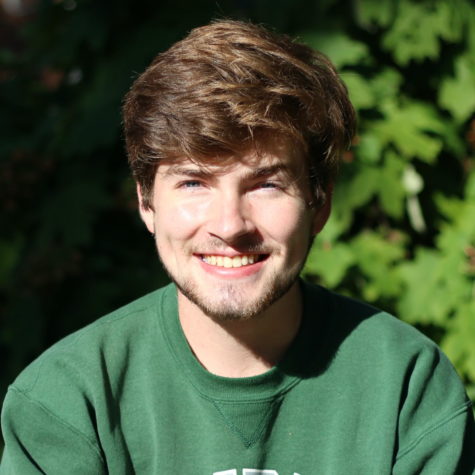Students go global at Study Abroad Fair
September 14, 2018
Almost forty percent of companies, according to a 2014 joint study by the University of Hawai’i at Manoa and the University of Memphis, “believe they have failed to fully exploit international business opportunities in the past five years due to lack of internationally competent personnel,” and that number has possibly risen since then.
At last Friday’s Study Abroad Fair, the Office of Education Abroad proved its intention to give every Case Western Reserve University student the opportunity to experience different cultures, become more internationally marketable to potential employers and, most importantly, grow as a global citizen.
The Study Abroad Fair is an annual event held the Friday after Labor Day from 10:30 a.m. to 2 p.m. on the Case Quad and is the largest event hosted by the Office of Education Abroad, an office within the Center for International Affairs. Attracting students from across campus, the Office of Education Abroad punctuates their table-style expose on the over 175 study abroad options with snacks, ice cream and activities.
The fair is a good time for all participants and provides a strong starting point for students interested in international adventures.
Kayele Silue, a third-year student, was one of many students who had a strong desire to study internationally before even stepping foot on CWRU’s campus. She was able to accomplish this goal—with the help of the Office of Education Abroad—this past spring when she spent the semester in Madrid, Spain.
As an international student, Silue expected her experience to be something like her previous experiences but said she found it “much easier than expected.”
Her greatest concern was the language barrier, which turned out to be overblown. Instead, she characterized the experience as, “full of adventures and discovery,” claiming she learned a lot about independence.
Madison Tse, another third-year student who studied abroad at King’s College London at the same time Silue was studying in Madrid, echoed similar points about her fears being unfounded and her own self-discovery.
“I [was] afraid of connecting with people,” said Tse, “but it wasn’t a problem, and [it] was actually easy to connect with people.”
Like Silue, Tse spent lots of time exploring, which, to her, was “kind of the point” of studying abroad. Also like Silue, Tse said she developed confidence from her study abroad experience. Additionally, due to the nature of education in England, she explained that she learned to prep more for her classes and was able to enjoy learning just for the sake of learning.
Tse’s experience is part of the norm, as study abroad students often see their GPA rise after returning to school in the U.S. and are 19 percent more likely to graduate on time.
As a premed student, Tse also proves that even students in programs with hefty breadth requirements can study abroad and still graduate on time. For this reason, the Office of Education Abroad recommends that students begin expressing interest and engaging in dialogue at least one academic year in advance if they are interested in a program abroad.
However, students should not despair if they decide they want to study abroad a little later. The Office of Education Abroad works with all students, regardless of their academic progress, to incorporate study abroad into their CWRU experience in some way, whether it be through a full semester or year abroad, a week or two international jaunt during a school break or a summer trip.
Both Tse and Shaan Patel, a second-year student who studied at the London School of Economics this past summer, were surprised they felt such a culture shock while visiting a nation that shares a common language and heritage with the United States. Patel visited England during the FIFA World Cup, which he said really defined his experience of English culture.
Patel said it took him some time to adapt to the fine points of English culture, like cars driving on the “opposite” side of the road, but said he adjusted to the point where he looked so much like a native Londoner that people would ask him for directions. Like Tse and Silue, Patel’s fears turned out to be non-issues, and he enjoyed his experience studying abroad.
Patel also explained that he grew as a person by “gaining global perspectives” and “becoming more culturally aware.” He said he would recommend studying abroad to other students.
Along with personal enrichment, studying abroad can provide clear career advancement opportunities. Students who have studied abroad are almost twice as likely as those who have not studied abroad to find a job within a year of graduation.
Additionally, for students hoping to continue their education in graduate school, 90 percent of those who participated in education abroad as an undergraduate reported getting into one of their top two choices for graduate schools.
This year’s Study Abroad Fair echoed the warm sentiments study abroad students felt about their experiences. Cheerful, upbeat music was playing throughout the Quad, and friendly study abroad students and faculty were telling students, traveling alone or in packs, about the intricacies of their programs.
Faculty from the Office of Education Abroad were bustling around hoping to find each student their perfect study abroad fit, a fit which is perhaps best characterized by Tse’s feelings about her experience.
Tse says she “glows” when she talks about her study abroad experience.



